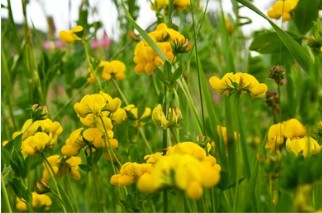We use cookies to understand how you use our site and to improve the overall user experience. This includes personalizing content and advertising. Read our Privacy Policy

Legume forages contribute to the input base of rural industries by providing improved pastures through grazing and nitrogen fertilizer for the cultivation. Viruses such as alfalfa mosaic virus (AMV), white clover mosaic virus (WCMV), and clover yellow vein potato virus (CYVV) have been identified as members of three major groups of plant viruses that can individually infect a large number of plant species and cause significant damage, particularly in forage and legume crops. Traditional breeding efforts have yet to be effective in rapidly developing new varieties of forage grasses resistant to viruses. However, in the last two decades, biotechnological approaches such as marker-assisted selection (MAS) and transgenic technologies have provided new strategies to increase the level of resistance and durability of crop forages in a short period.
Since forage legumes do not have an effective and easily transferable natural resistance to viruses, traditional approaches to prevent forage virus infection have been laborious and economically unsustainable. In addition, new resistance genes cannot usually be readily introduced into existing breeding programs due to barriers to interspecific sexual and somatic crosses. We offer plant genetic technologies to develop effective and durable resistance to a wide range of plant viruses in forage legumes, allowing the introduction of new genetic traits into forages.
Lifeasible develops genetic engineering methods for expressing all or some viral genes in transgenic forage grasses.
(1) Gene Construction and Transgenic Expression
We use the 35S cauliflower mosaic virus (CaMV) promoter to drive the expression of the gene encoding the shell protein isolated from the viral strain.
(2) Transformation of Herbaceous Legumes
We established efficient protocols for the regeneration and genetic transformation of all major forage legumes using Agrobacterium to produce transgenic virus-resistant forage legumes.
Our efficient transformation program has made it possible to develop genetically engineered resistance to viral diseases affecting major forage legumes, including white clover, red clover, sub-clover, and alfalfa. Our expert team invests time and effort in designing the gene structure and properly evaluating gene copy number, gene expression, and stable meiotic inheritance to help you obtain durable genetically engineered virus resistance or immunity.
Lifeasible is committed to producing virus-resistant forage legumes through genetic technology. We have a robust regeneration and transformation program for forage legumes. Our experts can evaluate transgenic plants carrying transgenic loci under field conditions and use these transgenic plants as starting material for generating new transgenic germplasm to create synthetic virus-immune varieties. If you have any special requirements for our solutions, please feel free to contact us.
Reference
Get Latest Lifeasible News and Updates Directly to Your Inbox
Mechanisms Regulating Plant Chloroplast Biogenesis
April 15, 2025
We use cookies to understand how you use our site and to improve the overall user experience. This includes personalizing content and advertising. Read our Privacy Policy